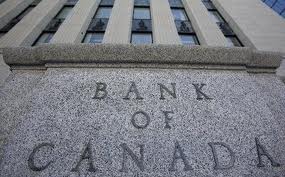This article appeared on CBC.ca on November 9th, 2011.
About 12 per cent of Canadian mortgage holders would be challenged if their rate went up by less than one percentage point, a report from the Canadian Association of Accredited Mortgage Professionals found Wednesday.
CAAMP is a national agency that represents 12,300 people who work somewhere in the mortgage industry.
Some 650,000 out of 5.8 million Canadians who have some sort of mortgage would be at risk if their rate went up by as little as less than one percentage point, the agency said in its annual report Wednesday.
Many of those people are on fixed-rate mortgages, and the agency says by the time their mortgages are due for renewal, their financial capacity will have increased and the amount of mortgage debt will be reduced. Indeed, the group’s annual report paints a picture of a mortgage market in gradual recovery from the recession. All in all, there’s a “gradually falling rate” of people falling behind on their mortgages, the report notes.
But the report also says as many as 175,000 Canadian homeowners — as much as two per cent of the market — may owe more on their mortgages than their homes are worth on the market.
On the other side of the ledger, the report found there are 2.85 million Canadian homeowners who are debt-free on their homes — meaning, they owe nothing on their homes either in terms of a mortgage or home-equity line of credit. And 94 per cent of Canadian homeowners own at least 10 per cent of the equity in their homes, the report finds. Within that, more than three-quarters (78 per cent) own more than 25 per cent of their homes.
But about 75,000 Canadian homeowners own less than 10 per cent of their homes. That figure represents less than two per cent of mortgage holders, but those are the people who could be susceptible to a modest pullback in home prices, as has happened in large parts of Europe and the United States in recent years.
For much of the past year, the Bank of Canada, federal government officials and private sector economists have warned Canadians to get their finances in order and reduce their debt loads ahead of higher interest rates to come.
“While the forecasts for the economy, housing market, and mortgage market are encouraging, there is, as always, uncertainty about the outlook,” the report warns.
And to be sure, the picture of Canada’s housing market painted in the CAAMP report looks significantly better than the picture in the United States. A report from real estate data firm Zillow released Tuesday found that 28.6 per cent of U.S. homeowners are underwater — meaning, they owe more on their mortgages than their homes would be worth if they sold them.
Nonetheless, the CAAMP report says a “sizable minority” of Canadian homeowners would be unable to withstand even a one percentage point rise in their mortgage. Although 60 per cent of Canadians are in fixed rate mortgages (the average rate was at 3.92 per cent in 2011, a drop from 4.22 per cent a year earlier) the budgets for a number of homeowners are squeezed enough that they would be in trouble if their rates went up by that comparatively small amount.
“A vast majority of mortgage holders has considerable capacity to afford rises in mortgage interest rates,” the report stated. CAAMP estimates that the typical mortgage-holder could withstand an increase of about $750 a month without succumbing.
Canadians owe a collective $982 billion of debt on their homes, and the report estimates that there are about 13.6 million occupied dwellings in Canada.
Within that, about 9.55 million are owner-occupied, including about 5.80 million with mortgages and 3.75 million without mortgages.
Across all homeowners, the average amount owed on a mortgage is $90,000 and the average home-equity line of credit is $12,000.
Link


 The decision was made on Halloween and it was scary for Kamloops duffers — Aberdeen Hills Golf Links will vanish into the mist.
The decision was made on Halloween and it was scary for Kamloops duffers — Aberdeen Hills Golf Links will vanish into the mist.